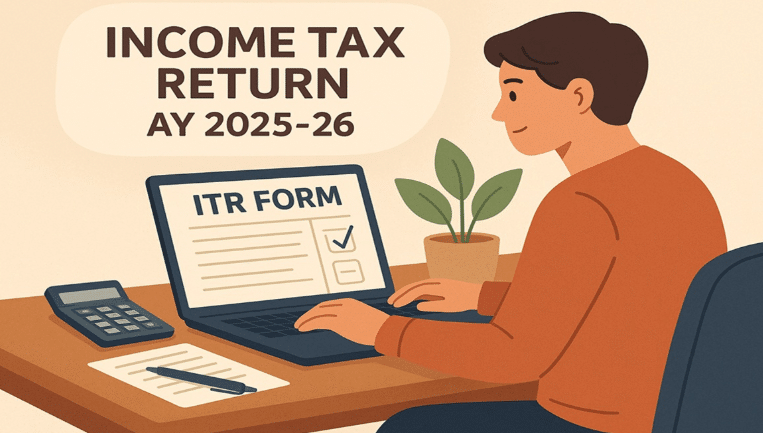As the financial year 2024-25 draws to a close, taxpayers across India are racing against time to complete their Income Tax Return (ITR) filing. The Central Board of Direct Taxes (CBDT) had extended the deadline from 31 July 2025 to 15 September 2025 for non-audit cases, but now that date is just around the corner. With only a day left, the pressure is on, and so are the questions: What happens if I miss the deadline? Can I still file later? What documents do I need?
This blog will walk you through all the critical updates—**deadlines, process, penalties, portal issues, and extension buzz—**so you can stay fully informed.

ITR Filing 2025 Deadline
For Assessment Year 2025-26 (AY 2025-26), which relates to income earned in Financial Year 2024-25 (FY 2024-25):
- Original deadline: 31 July 2025
- Extended deadline: 15 September 2025 (for individuals, HUFs, small businesses not subject to audit).
- Belated return filing window: Till 31 December 2025, with late fee and reduced benefits.
In simple terms, if you haven’t filed your ITR yet, 15 September 2025 is your last chance to file without penalties beyond late fees.
Process of Filing ITR
Many first-time taxpayers find ITR filing intimidating. But the process is more straightforward than it seems if you prepare well.
- Log in to Income Tax Portal: Visit incometax.gov.in, and log in using your PAN (Permanent Account Number).
- Choose the Correct ITR Form:
- ITR-1 → For salaried individuals with income up to ₹50 lakh.
- ITR-2 → For individuals with capital gains, foreign income, or higher income sources.
- ITR-3 → For professionals/business income.
- ITR-4 → For presumptive taxation cases.
- Gather Documents:
- Form 16 from your employer.
- Bank statements and interest certificates.
- Investment proofs (ELSS, PPF, LIC, etc.).
- Form 26AS and AIS (Annual Information Statement) for tax credits.
- Fill in Income Details: Include salary, rental income, business profits, interest income, and any other earnings.
- Verify Tax Payments: Cross-check advance tax, TDS, and self-assessment tax already paid.
- Submit & E-Verify: E-verification (via Aadhaar OTP, net banking, or DSC) is mandatory—without it, your return won’t be processed.
Penalties for Missing Deadline
Missing the 15 September deadline doesn’t mean you can’t file—but it will cost you.
- Late fee under Section 234F:
- ₹1,000 if your income is ≤ ₹5 lakh.
- ₹5,000 if your income is > ₹5 lakh.
- Interest under Sections 234A, 234B, 234C: Charged on unpaid tax dues. Even a slight delay increases your liability.
- Loss of benefits:
- You cannot carry forward business or capital losses if the return is late.
- Certain deductions and regime switch options may be lost.
- Refunds may get delayed.
In short, a late filing may cost you more than just money—it could impact your long-term tax planning.
Current Issues & Portal Glitches
As always, the last week before the deadline is chaotic. The Income Tax e-filing portal has been facing:
- High traffic: Millions trying to log in at the same time.
- Delays in AIS/26AS downloads: Crucial for verifying tax credits.
- Form auto-population errors: Some users are reporting mismatches.
Tax experts recommend not waiting until the final hours. Filing early not only saves you stress but also ensures your refund (if eligible) is processed faster.
Is There Another Extension Coming?
Many taxpayers and Chartered Accountants are requesting another extension due to portal glitches. However, as of now, CBDT has not announced any further deadline extension beyond 15 September 2025.
If you miss this date, your only option is to file a belated return by 31 December 2025 with penalties and restrictions. So, don’t gamble on a last-minute extension—file before the deadline.
Checklist Before Filing
To avoid mistakes, here’s a quick checklist:
- ✔ Form 16 from employer
- ✔ Form 26AS & AIS (tax credit summary)
- ✔ Bank interest statements
- ✔ Capital gains statements (shares, mutual funds, property)
- ✔ Investment proofs (80C, 80D, 80G, etc.)
- ✔ Aadhaar linked with PAN
- ✔ Self-assessment tax payment (if required)